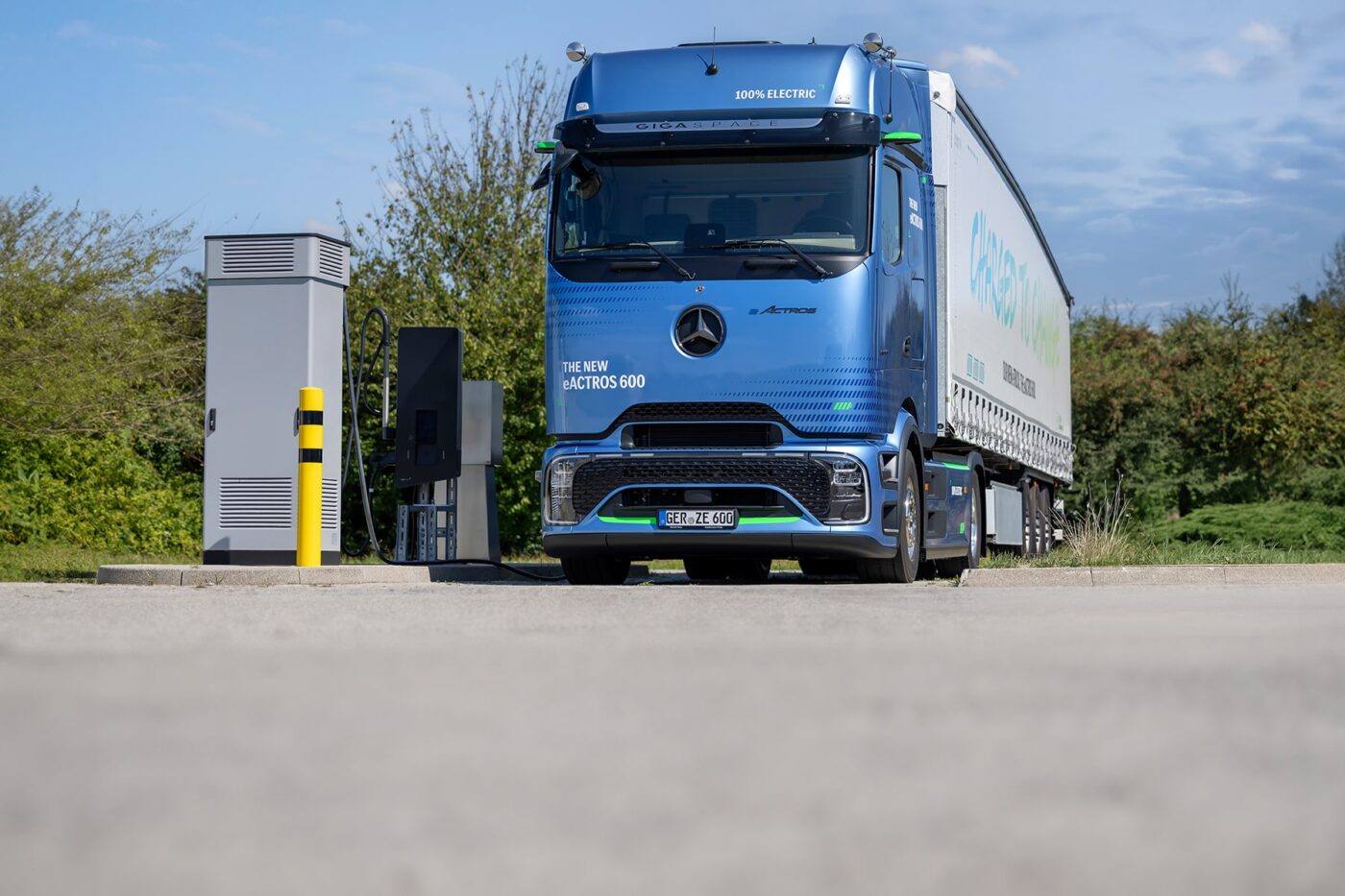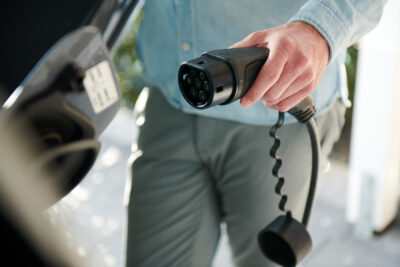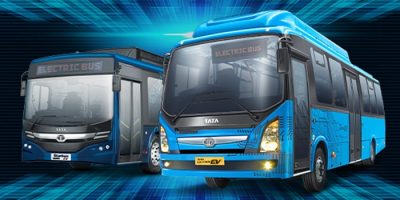
When will we have a standard for reserving truck charging stations?
You are leading an initiative to create a booking system for truck charging stations. What’s your main goal?
We support accessibility and usability of charging infrastructure. For trucks, that requires guaranteed access to chargers, which can be done by booking charging stations. You do not want that at every site, and operators can only do that with proprietary connections. Our goal is to create a standard way of exchanging the data needed for booking services. That way, each charging station operator and booking service can still have its own systems and connect via a standard way of communication.
Finally, this should result in more chargers with connected booking systems and lower costs for connecting the booking systems to charge stations.
How is the initiative organised, and who participates?
As EVRoaming Foundation, we have a Logistics Work Group that is looking at different aspects related to supporting the logistics market with better accessibility of charging infrastructure. A crucial element is the possibility of reserving charging stations. Part of this group is the Heavy Duty Vehicle Booking task force, a project-based group with concrete targets and milestones. It is a business-oriented group that created an overview of the HDV Booking ecosystem and the business use cases. We are starting the technical OCPI Booking task group that translates these business requirements into concrete OCPI specifications.
Everyone can become a full contributor to the EVRoaming Foundation, and all contributors can join these task groups, although we ask for commitment and involvement in the topic. Since we started, many logistic and HDV companies have joined. For example, DAF, Daimler Truck, Gireve, Milence, Monta, Scania, Shell, Thoughtworks, Traton, Volvo, and many others. It is a real mix of CPOs, OEMs, (booking) service providers, roaming hubs, and IT suppliers, all of whom play a role in this ecosystem. Several companies are also active in North America to ensure that we also cover that area.
How do they proceed in defining the booking standard?
We are making good progress. We are currently starting the OCPI Booking task group, which means that the first versions of the ecosystem and business UCs are ready to be translated into specs. We hope to have the first OCPI booking service ready by April next year. It will work with OCPI v2.2.1, which will be upgraded to 2.3. And, of course, it will also be usable with OCPI 3.0, which we are working on.
What are the biggest challenges?
As EVRoaming Foundation, everything we do is based on consensus. Both the business-oriented activities and the technical-oriented activities. With a large, diverse group of participants, it is always a challenge to reach a consensus and make progress at the same time. With logistics and HDV Booking, the most interesting thing is that there isn’t much experience yet. Although the concrete number of electric trucks is still limited, it is growing fast and has a huge impact, and that means that we need to develop fast and deliver results (e.g. specs) in a relatively short time for standardisation organisations.
So far, it has gone great with very enthusiastic and active participants.
There are still very few truck charging stations in Europe. Why is it important to set booking standards already?
As my answer to the previous question mentioned, that is indeed an interesting situation. The numbers are still low, but the impact is big, and the numbers are growing fast. As we had 16 years ago with the first electric vehicles, it is also the chicken and the egg situation: an electric truck can only be used when there is good available charging infrastructure. Trucks with deadlines on delivery times and how they are used must have guaranteed charging possibilities. Booking possibilities support that. When booking services are available, a possible hurdle is removed for companies to invest in electric trucks. So it is helping the market.
Do you only address public charging stations or also charging stations at, e.g. freight forwarders?
No. The booking communication between parties is not limited to only public charging. We are developing it to be used globally and in all kinds of situations based on the current business use cases. It is, of course, then up to operators, service providers, and site owners to offer the booking services. There is no difference in the protocol. It will also be usable for shipping companies, depot charging, and other vehicle types like personal vehicles, buses, vans, etc. The focus at this moment is enabling it for trucks. But we see many new and future business use cases to dive into.
When will the new standard be finalised and implemented?
We are making good progress and hope to have the first specs released by April next year. It will be usable with the current version of OCPI 2.2.1, which will be upgraded to 2.3. When it will be implemented is then, of course, up to the companies. Looking at the need and the active participation from many companies in our task groups, I expect that several will implement it quickly as it does not disturb the existing charging services, creates new opportunities, and fulfils the market needs.
Where will we see this new booking standard in the future? Will truck OEMs feature it in their apps?
We see different possibilities. Of course, the operator must enable their charges so that they can be booked. Various parties will offer it. Site owners and depot managers, CPOs, and booking service providers via websites and apps, and it is very likely that truck OEMs will integrate it into their apps. Just like routing and navigation providers via apps and incar tools.
Even though the initiative targets heavy-duty vehicles, will the technology be interesting for light commercial vehicles or passenger cars?
Yes. The bottom line is that there is not much difference in booking a charger for a bus, personal vehicle, van, or vehicle for disabled persons. It is probably even usable for booking chargers for vessels/ships. The main difference is the urgency and the more concrete business case for trucks; it can cost them money if they can’t charge the required energy at the right moment.
Mr. Bayings, thank you for the interview.





0 Comments